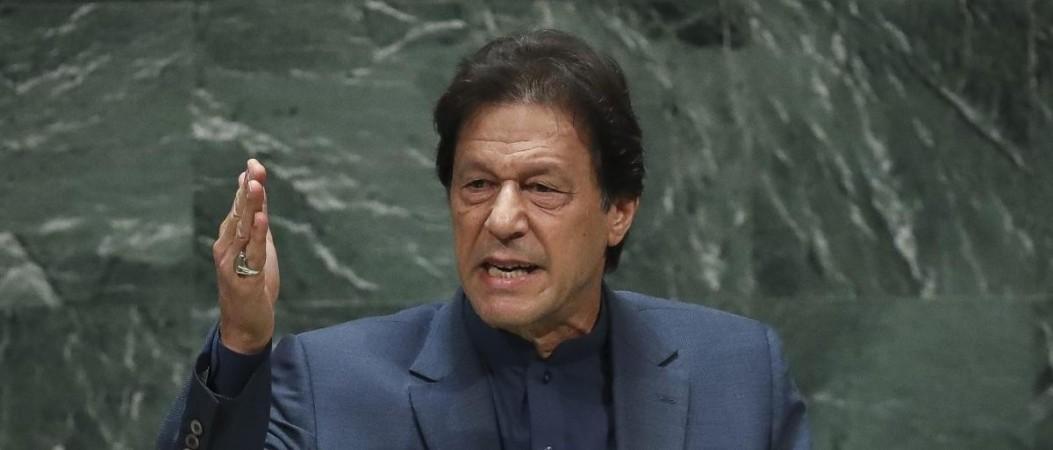Pakistan is heading towards an unavoidable political crisis after the thumping victory of Imran Khan's Pakistan Tehreek-e-Insaf (PTI) in the recently held by-election in Punjab province. Out of the total 20 provincial seats, PTI won 15 seats in the home turf of Pakistan Muslim League (PML-N), which could secure only four seats.
This outcome has sufficiently weakened the nine-party Pakistan Democratic Movement (PDM) coalition government, including PML-N. Immediately after the results' announcement, Imran Khan called for early National Assembly (NA) elections in Pakistan. This demand is the main bone of contention and will lead to increased political uncertainty and possible street violence if the ruling coalition does not heed to Khan's demands.

PML-N has lost Punjab after the recent polls outcome and may result in the ouster of Hamza Sharif as the chief minister on July 22. There is an understanding in Pakistan that whoever rules Punjab, rules the country.
As a result, if the PTI and Pakistan Muslim League-Quaid (PML-Q) coalition comes back to power in the province, the Shehbaz Sharif-led government in Islamabad may not be able to survive for long.
Besides failing politically, the ruling PDM alliance has proven unsuccessful in handling the country's dwindling economy. In such a situation, the powerful military establishment may dump the PDM government.
Although, the coalition partners have shown no signs of holding early elections and are looking forward to finishing the term until mid-next year. This will not go down well with Imran Khan who is far more confident after the recent win in Punjab.
Khan has been going with all guns blazing against the PDM coalition parties, military and Pakistan's election commission after his embarrassing ouster from power in April. His narrative against the state institutions and the 'foreign conspiracy' propaganda targeted at the US is resonating well with the voters, both in the urban and rural constituencies.
Punjab by-election results underscore that the Khan factor, which had prevailed in the 2018 election, has again helped the PTI to massively sway the electorate.
Whereas, the PDM government is struggling to sell anything substantial to Pakistani people, who are facing severe food and energy crisis, and long power blackouts. The ruling coalition has also failed to revive the stalled International Monetary Fund bailout programme, leading to more economic uncertainty in the country.
After the Punjab defeat, PML-N supremo and former Prime Minister Nawaz Sharif said in a statement that the party paid the price of 'difficult decisions' taken by the coalition government that came into power in April.

Nevertheless, the two main political parties -- PML-N and Pakistan Peoples Party (PPP) -- of the PDM coalition are not in favour of holding early elections as they fear adverse outcomes. Both parties have reportedly agreed to delay general polls until the mid-next year in order to provide the PDM some breathing space to take 'populist' decisions, make key electoral reforms, improve country's economic outlook, and find legal ways to target Imran Khan and his key party leaders.
Prime Minister Shehbaz Sharif has already urged the Election Commission of Pakistan (ECP) to announce the "long-delayed" judgment in the prohibited funding case, previously referred to as the foreign funding case, against the PTI. The ECP had reserved its verdict last month.
In an address to his party supporters on July 18, Imran Khan criticised the ECP for being "biased" and demanded Chief Election Commissioner Sikander Sultan Raja's resignation over his alleged favouring of the PML-N in electoral battles.
These allegations and counter allegations from the PDM and Khan's PTI are likely to deteriorate political environment in Pakistan. Consequently, Pakistan is staring at a greater risk of financial default amid growing political uncertainty.
What is also noteworthy here is that the process to select the new Chief of Army Staff in Pakistan will start in the coming months as Gen Qamar Javed Bajwa has decided to not seek the 'second' extension.
Therefore, it seems unlikely that the PDM leadership would miss out on the chance to select the new army chief, who could, in some ways, help their government face the Imran Khan 'challenge'.
Khan, on the other hand, is putting pressure on the election commission to conduct snap polls, possibly before October this year, so that he could pick the new army chief after coming back to power in Islamabad.
Moreover, he thinks that fresh elections are the only solution to Pakistan's economic problems. But besides rhetoric, PTI is also enjoying the downfall of PML-N, which has been blamed for taking 'tough decisions' to the country's economy.
A day after Punjab by-election results announcement, Pakistani rupee nosedived PKR 4.25 in a single day and hit an "all-time low" at PKR 215.20 against the US dollar -- an immediate consequence of the ongoing political turmoil in the country.
While Imran Khan is feeling vindicated after defeating PML-N in Punjab, Pakistan's economy is fast heading to a disaster. With more political uncertainty in the offing, neither the Shehbaz Sharif-led PDM government nor Khan's possible return to power can provide relief to the desperate population of Pakistan.
(With inputs from IANS)















